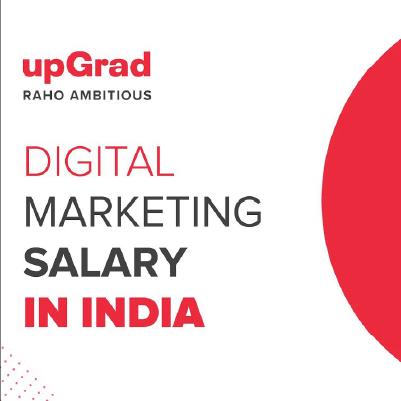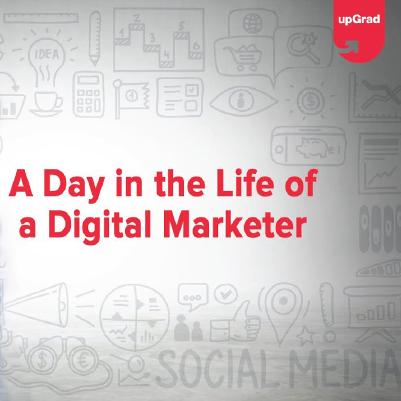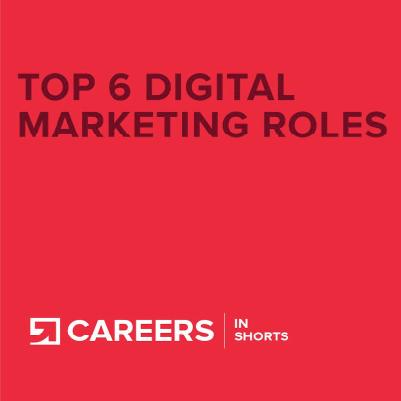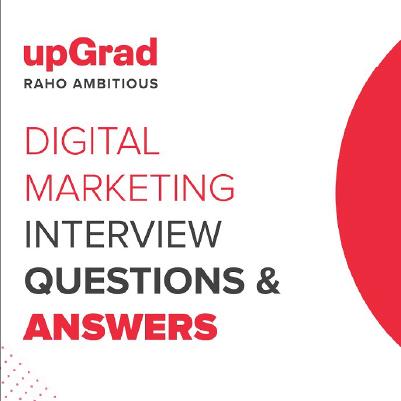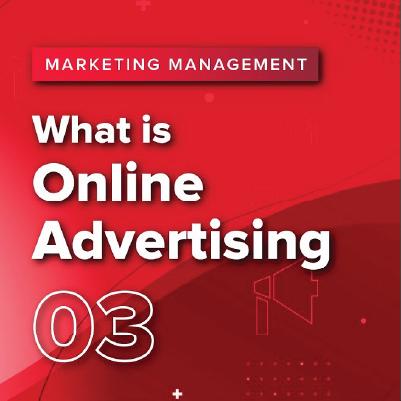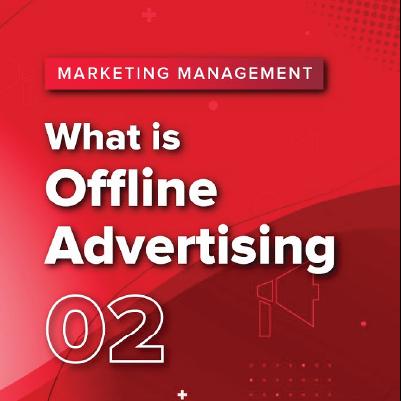All courses
Fresh graduates
- Study abroad
- Offline centres
More
Performance Marketing Courses Online
Performance marketing focuses on driving conversions and generating leads by targeting online tools, strategies, and methodologies.
-5d0f5b994a674e7eae7d8c6a60bb6cb1.jpeg&w=3840&q=75)
Performance Marketing Course Overview
Performance marketing focuses on driving conversions and generating leads by targeting online tools, strategies, and methodologies. It is also known as performance advertising, where it works as a pay-per-action approach. You pay only when the user carries out the specific action. It is a results-oriented approach that uses data and analytics to track progress and optimise campaigns for maximum ROI.![]()
Businesses can use performance marketing for various objectives, including website traffic, brand awareness, and product sales. To be successful, performance marketing must be strategic and data-driven. Performance marketing is a popular strategy for many businesses because it is highlymeasurable that makes it effective.
When used correctly, performance marketing can be an extremely beneficial way to grow a business online. However, you must note that this approach is unsuitable for all companies or objectives. As a result, you must know which performance marketing measures to take for which business, based on their requirements.
To sum it up, performance marketing is an online marketing strategy that aims to get the best out of a company's campaigns by using data and analytics to track progress and optimise conversions. However, businesses must carefully consider whether or not this type of marketing is right for them before moving forward.
Performance marketing is online marketing where advertisers pay publishers only when their ad campaigns generate results, such as clicks, sales, or leads. Hence, performance marketing is an attractive option for both advertisers and publishers, as it aligns the interests of both parties and creates a more efficient way to allocate resources.
Digital Marketing Course Instructors
Learn From The Best
Our digital marketing courses online feature expert instructors with years of experience, bringing the industry insights. Get a chance to learn from the best.
5
Instructors
3
Industry Experts
Digital Marketing Projects
Learn by Doing
Experience practical learning with real-world projects in our courses in digital marketing. Get hands-on experience & build your portfolio.
6+
Projects
Placements in Digital Marketing Courses
Our Placement Numbers
After completing any digital marketing course with placement, you can be placed in top companies with competitive salary packages. Get ahead in your career
Top Recruiters








Sucess Stories
What Our Learners Have To Say
Digital Marketing Videos
You Might Like To Watch
Learner Support and Services
How Will upGrad Supports You
Receive unparalleled guidance from industry mentors, teaching assistants, and graders
Receive one-on-one feedback from our seasoned faculty on submissions and personalized feedback to improvement
Our Syllabus is designed to provide you with ample of industry relevant knowledge with examples
Frequently Asked Questions on Performance Marketing
1. How does performance marketing work?
Advertisers typically work with affiliate networks or publishers in performance marketing to promote their products or services. When a potential customer clicks on an ad, the advertiser pays the network or publisher a commission for the generated sales or leads. Because advertisers only pay for successful outcomes, performance marketing is a cost-effective way to reach customers online.
2. What are the benefits of performance marketing?
Performance marketing offers several advantages for both advertisers and publishers. For advertisers, the main benefit is that they only pay for successful outcomes, making it a very efficient way to market their products or services. For publishers, performance marketing allows them to earn commission on sales or leads generated, making it a great way to monetise their website or blog traffic.
3. What are the risks of performance marketing?
While performance marketing can be an effective and efficient way to market products or services online, some risks are involved. For example, suppose an advertiser is promoting a product that is not high quality or relevant to their target audience. In that case, they may end up paying for many unsuccessful clicks that result in no sales or leads. Additionally, publishers may be tempted to generate fake clicks on ads to earn a commission, damaging the advertiser's reputation and leading to them losing money.
4. How can performance marketing be used effectively?
Some things to consider when using performance marketing to make it as effective as possible:
1. Choose relevant and high-quality products or services to promote, as this will help ensure that potential customers are interested in your offering.
2. Target your ads carefully, so they are only being seen by people who are likely to be interested in your product or service.
3. Monitor your campaigns closely to identify and fix any issues that may arise quickly.
5. What are some standard performance marketing terms?
There are a few key terms that are used in performance marketing. Here are a few of the most important ones:
Affiliate network: A group of websites that have agreed to promote an advertiser's products or services in exchange for a commission on sales or leads generated.
Publisher: An individual or website promoting an advertiser's products or services in exchange for a commission on sales or leads.
Pay per sale (PPS): A commission model in which the advertiser pays the publisher a commission for each sale generated from an ad.
Pay per lead (PPL): A commission model in which the advertiser pays the publisher a commission for each lead that is generated from an ad.
Click-through rate (CTR): The percentage of people clicking an ad after seeing it.
Conversion rate: The percentage of people taking the desired action after clicking an ad, such as making a purchase or filling out a form.
Cost per acquisition (CPA): The cost of acquiring a new customer through performance marketing. You can calculate this by dividing the total cost of the campaign by the number of new customers acquired.
6. What are some common performance marketing mistakes?
here are a few common mistakes that advertisers and publishers make when using performance marketing. Here are a few of the most important ones to avoid.
Choosing the wrong product or service to promote: You must choose products or services that are relevant to your target audience and that you believe in. Promoting a product or service that is not high quality or applicable to your target audience will likely result in many wasted clicks and money.
Not targeting your ads carefully: Target your ads in a way that reaches the people who are likely to be interested in what you're promoting. If your ads are being shown to people not interested in what you are offering, you will likely waste a lot of money.
Not monitoring your campaigns closely: You must monitor your performance marketing campaigns closely to identify any problems and make necessary changes. If you're not tracking your campaigns, you could be wasting a lot of money without even realising it.
7. What are some standard performance marketing tools and technologies?
A few common tools and technologies are used in performance marketing. Here are a few of the most important ones:
Tracking software: Tracking software tracks the results of your performance marketing campaigns. This software can track sales, leads, or clicks, and You can use it to help you optimise your campaigns for better results
Ad serving platforms: Ad serving platforms serve your performance-based ads to the appropriate audiences. These platforms let you target your ads so that they are only seen by people who are likely interested in what you're promoting.
Payment processing platforms: Payment processing platforms are used to process payments for successful outcomes. These platforms allow you to automatically pay your publishers or affiliates based on the results they generate.
8. What are some standard performance marketing tools and technologies
A few common tools and technologies are used in performance marketing. Here are a few of the most important ones:
Tracking software: Tracking software tracks the results of your performance marketing campaigns. This software can track sales, leads, or clicks, and you can use it to help you optimize your campaigns for better results.
Ad serving platforms: Ad serving platforms serve your performance-based ads to the appropriate audiences. These platforms let you target your ads so that they are only seen by people who are likely interested in what you're promoting.
Payment processing platforms: Payment processing platforms are used to process payments for successful outcomes. These platforms allow you to automatically pay your publishers or affiliates based on the results they generate.
9. What is the role of a performance marketing manager?
The Performance Marketing Manager is primarily responsible for the management of digital accounts and diversifying the channel mix using paid social channels. They focus on campaign-specific results and drive the marketing department's commercial performance.
10. What is the career trajectory for performance marketing managers?
The career trajectory could begin as a digital marketing executive, which would then proceed to digital marketing manager, performance marketing head, and so on. The goal, in all of these positions, is to use the required analytical and tactical knowledge to get things accomplished.
11. Is performance marketing a high paying field?
Performance marketing is undoubtedly one of the higher-paying fields of today. Further, as you gain enough experience and skills, you can expect to get increased compensation, too.
12. What are some important technologies I must know for performance marketing?
Some important tools and technologies that you can use are - conversion optimization tools, email automation tools, search engine marketing, remarketing, marketing automation, and so on.
13. What all is included in the broad umbrella of performance marketing?
Performance marketing is a subset of digital marketing that refers to advertising programs in which affiliates and marketing companies are only paid when a desired action is completed, such as a completed lead, sale, booking or download.
14. What is a performance marketing strategy?
This refers to bringing more interactions in advertising and marketing. In this, the marketer does not pay a fixed price for showcasing an ad, istead, the payment is done when some action is taken on the advertisement. This opens room for a lot of creativity and freedom, as well as experimentation.
15. What are some of the most common types of performance marketing techniques?
These include affiliate marketing, sponsored content, native advertising, social media marketing, paid search marketing, and more.
16. Why do companies require performance marketing?
Performance marketing is required to help companies see and understand each and every of their money being spent on advertising and marketing. This leads to better campaigns, budgeting, and overall benefits for the company.


upGrad Learner Support
Talk to our experts. We are available 7 days a week, 10 AM to 7 PM
Indian Nationals
Foreign Nationals
Disclaimer
The above statistics depend on various factors and individual results may vary. Past performance is no guarantee of future results.
The student assumes full responsibility for all expenses associated with visas, travel, & related costs. upGrad does not .










%20(1)-d5498f0f972b4c99be680c2ee3b792d7.svg)












-ae8d039bbd2a41318308f8d26b52ac8f.svg)
-35c169da468a4cc481c6a8505a74826d.webp&w=128&q=75)
-7f4b4f34e09d42bfa73b58f4a230cffa.webp&w=128&q=75)




















